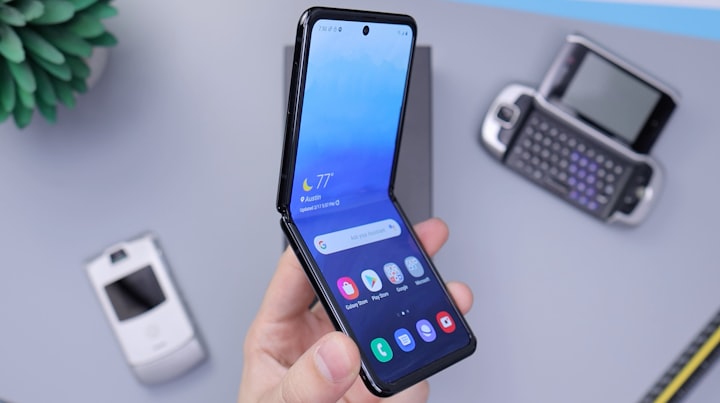How does Phone Addiction affect my Mental Health?
Mental Health

How does Phone Addiction affect my Mental Health: The introduction of phones have changed our lives and how we do what we do. It’s like to function effectively you’ve got to have a phone.
Early in the morning when you wake up, its first thing you reach out to check for- who called you while you were off, what’s trending, which email popped up, what your schedule looks like and so much more. At the end of the day instead of peacefully retiring to bed, you spare some time to browse through your favourite sites. Were at a point when a mere 5 minutes away from your phone can make you feel anxious, you just start to panic. When you can no longer have a proper physical conversation because your phone is keeping you busy, you’re probably addicted and putting your mental health at risk.
Research Studies

Research studies have revealed that phone addiction is much bigger than you think it is and that it could affect your mental health in so many negative ways. To avoid this though, the immediate solution is getting informed and curbing it before things escalate.
To properly understand what drives you to get addicted to your phone, you need to know about the Dopamine effect. Phone addiction greatly relies on a feel-good hormone known as Dopamine. It’s a chemical responsible for sending signals across the brain, motivating you, and making you feel rewarded for a certain act. It’s also essential to neuroplastic change which allows addiction to take effect.
Every time you receive a text message or a phone call, your brain rewards you with a dose of dopamine. As time goes on, the dopamine shot starts to get realized earlier than before. You then get to a point when your phone dings, you anticipate getting rewarded. You are motivated to keep expecting texts and calls just so you can get that feeling of being rewarded at the end. It’s the first step to phone addiction. You slowly dive in and negatively affect your mental health without even knowing it.
According to Apple, it was discovered that iPhone users open their phones about 80times every day. Another finding by a research firm, Dscout, we swipe, type, and tap on our phones more than 2600 times every day while working, during meetings, at the dining table, and even when we should be sleeping.
All this valuable time spent staring at the phone can greatly affect your mental health. Below are some of the ways on how phone addiction affects your mental health.
Feelings of Anxiety
Studies have shown that phone addiction can cause anxiety. Anxiety is an intense, excessive, and persistent worry or fear about something. Phone addicts experience intense anxiety when they don’t have their phones or when they’re unable to check on them. Anxiety can cause you to neglect other daily activities. If not controlled anxiety can lead up to serious panic disorders.
Symptoms of anxiety range from increased heart rate, rapid breathing, restlessness, trouble concentrating, difficulty, falling asleep, headaches, stress among others. According to Mental Health Charity Mind, in just one year, 2017-2018, almost 15,000 cases were admitted due to anxiety caused by phone addiction compared to 11,500 cases of a decade earlier. Among these, four out of five 18-34-year-olds admitted to putting on a brave face every time they felt anxious. A few relaxation techniques can help you recover from anxiety for example visit a therapist or train yourself to relax every time you feel anxious.
Sleeping Disorders
Sleeping patterns vary from person to person however, a healthy adult requires at least 7-9 hours of sleep every night to function well. Universal statistics reveal that 71% of people sleep with or next to their phones. 44% of 18-24-year-olds have fallen asleep while using their phones. A person who uses their phone when they should be sleeping will most likely disrupt their sleeping pattern and damage their brain in the long run.
A phone screen emits bright blue light which confuses the brain. It gives it a hard time telling whether its day or night. Failure to decide will hinder your brain from producing melatonin, a hormone responsible for “sleep time” this makes it even harder for you to fall asleep at night. Practice going to bed without your phone. It’s the first step to recovery.
Depression
The relationship between phone overuse and suicide rates is overwhelming. Depression is a serious disorder which distorts your mood and brings about overwhelming sadness that you start to lose interest in things that used to please you.
Abnormal Psychology reports carried out recently show a significant rise in the incidence of serious depression among 12-25year olds in the United States. According to the findings, the trend started about 7years ago among phone owners. To be specific, major depression incidents were seen among 12-17year olds with a 52% increase from 2005-2017. Adults in the range of 18-25 rose by 63% from 2009-2012. The growing rates of adults were found to be contemplating suicide by 71% from 2008-2017. Individuals who were less glued to their screens exhibited signs of happiness while those who were always glued to their screens were found to be depressed.
Relationship Stress
Usually, we think that our phones bring us closer to our loved ones, yet it can be the other way round. Take an example of when you’re out on a date with your partner and instead of focusing all your attention on them, you focus on your phone. This act will make the feel neglected and alone, leading to mental stress.
According to NHS, there’s been an increase in the number of patients being admitted due to mental health issues. 8.7% of them were stress-related. The office of National Statistics also showed a rise in the number of stress-related cases to 595,000 between 2017 and 2018. Ankur Shah, the company founder believes that people would benefit a lot if they switched off their phones on certain occasions.
Decreased productivity and attention
Phone addiction can negatively affect your productivity and attention given at work. Experiments have shown that people performed poorly at tasks when they occasionally received a text, notification, or phone call during a task at work. To get the best out of work hours, you’re required to eliminate possible distractions, especially phones.
Research has also shown that having a phone on a table in front of you won’t allow you to be productive. Research by Eilish Duke (2017) entitled “Phone addiction, daily interruptions, and self-reported productivity, “found that productivity requires at least several minutes of unbroken concentration. Phone interruptions as brief as 2.8 seconds have proven to disrupt the flow of concentration and only fuel for increased errors. To get the most out of your workload try as much as possible to keep your phone away unless there’s an emergency that calls for you to constantly check.
Conclusion
A clear indication that you may be addicted to your phone is when you find it difficult to detach. When you choose your phone all the time over real physical meetings it’s a clear sign. Phone addiction can negatively affect your mental health if not regulated just as seen with the above. One sure one to protect your mental wellness is regulating phone use otherwise you risk damaging it
About the Creator
Mobile Shark Limited
Mobile Shark is the UK’s fastest growing retailer of Mobile Phone Cases and Accessories such as Screen Protectors for major brands including Samsung, Apple & more. Browse our range now to find the perfect Smart Phone Cases.






Comments
There are no comments for this story
Be the first to respond and start the conversation.